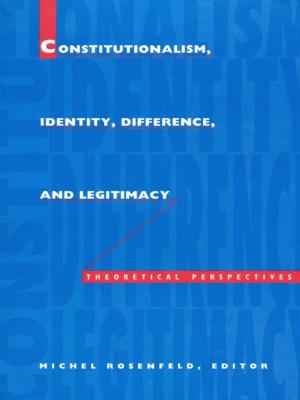Shakespeare, Brecht, and the Intercultural Sign
Fiction & Literature, Literary Theory & Criticism, British| Author: | Antony Tatlow, Stanley Fish, Fredric Jameson | ISBN: | 9780822380894 |
| Publisher: | Duke University Press | Publication: | September 24, 2001 |
| Imprint: | Duke University Press Books | Language: | English |
| Author: | Antony Tatlow, Stanley Fish, Fredric Jameson |
| ISBN: | 9780822380894 |
| Publisher: | Duke University Press |
| Publication: | September 24, 2001 |
| Imprint: | Duke University Press Books |
| Language: | English |
In Shakespeare, Brecht, and the Intercultural Sign renowned Brecht scholar Antony Tatlow uses drama to investigate cultural crossings and to show how intercultural readings or performances question the settled assumptions we bring to interpretations of familiar texts. Through a “textual anthropology” Tatlow examines the interplay between interpretations of Shakespeare and readings of Brecht, whose work he rereads in the light of theories of the social subject from Nietzsche to Derrida and in relation to East Asian culture, as well as practices within Chinese and Japanese theater that shape their versions of Shakespearean drama.
Reflecting on how, why, and to what effect knowledges and styles of performance pollinate across cultures, Tatlow demonstrates that the employment of one culture’s material in the context of another defamiliarizes the conventions of representation in an act that facilitates access to what previously had been culturally repressed. By reading the intercultural, Tatlow shows, we are able not only to historicize the effects of those repressions that create a social unconscious but also gain access to what might otherwise have remained invisible.
This remarkable study will interest students of cultural interaction and aesthetics, as well as readers interested in theater, Shakespeare, Brecht, China, and Japan.
In Shakespeare, Brecht, and the Intercultural Sign renowned Brecht scholar Antony Tatlow uses drama to investigate cultural crossings and to show how intercultural readings or performances question the settled assumptions we bring to interpretations of familiar texts. Through a “textual anthropology” Tatlow examines the interplay between interpretations of Shakespeare and readings of Brecht, whose work he rereads in the light of theories of the social subject from Nietzsche to Derrida and in relation to East Asian culture, as well as practices within Chinese and Japanese theater that shape their versions of Shakespearean drama.
Reflecting on how, why, and to what effect knowledges and styles of performance pollinate across cultures, Tatlow demonstrates that the employment of one culture’s material in the context of another defamiliarizes the conventions of representation in an act that facilitates access to what previously had been culturally repressed. By reading the intercultural, Tatlow shows, we are able not only to historicize the effects of those repressions that create a social unconscious but also gain access to what might otherwise have remained invisible.
This remarkable study will interest students of cultural interaction and aesthetics, as well as readers interested in theater, Shakespeare, Brecht, China, and Japan.















